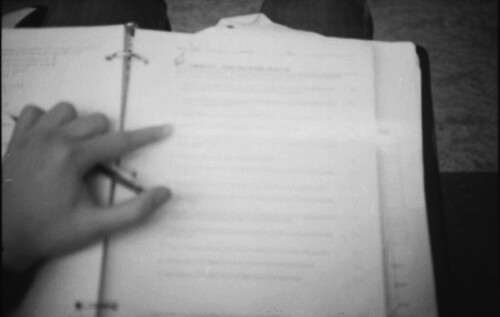Literacy and science: Writing and communicating
By Mary Bigelow
Posted on 2014-06-23
 This is a continuation of a question about Literacy and science: Reading and comprehension. The question dealt with incorporating literacy practices and activities into science instruction and the role of the science teacher in doing so.
This is a continuation of a question about Literacy and science: Reading and comprehension. The question dealt with incorporating literacy practices and activities into science instruction and the role of the science teacher in doing so.
At an inservice event I attended, a museum herpetologist described his work to a group of teachers. His research focused on a longitudinal study of frog populations in the Northeast United States, but he said that a good portion of his day was spent writing—notes, memos, observations, summaries, reports, journal articles, blog entries, and letters.
This type of writing is different from the narrative and creative writing students do in Language Arts (LA) classes. While our LA colleagues teach sentence structure and correct usage applicable to all forms of writing (including technical writing), it’s unrealistic to assume they will also teach students the nuances of scientific writing, especially without the context of science content.
Several Ms. Mentor columns have addressed literacy topics related to writing as communicating in science:
- Writing in science class. We’re having a discussion in our secondary school science department. Some of us think our lessons should incorporate more opportunities for students to learn how to write, while others maintain there’s little time for writing and that’s the job of the English teachers. Who is correct?
- Using essay questions. I want to use more essay-type questions on my unit assessments, but with 150 students I feel swamped trying to grade all of the papers and provide feedback. Any suggestions for making this a good learning process?
- Science notebooks: Archive or learning tool? In my Earth science classes, I require the students to keep notebooks. I give them directions as to what pages to put in the notebook and in what order. I thought this would be an easy grade for the students, but many of the students don’t follow the directions. Short of a failing grade for the notebooks, how can I demonstrate the value of organized notes?
- Students as peer editors. My students are working on research papers about inventions or chemical processes set mostly during the Industrial Revolution. I was wondering if you had any suggestions about peer editing. (See also the follow-up to this blog)
Speaking and listening are often overlooked as literacy practices. (Perhaps because they are harder to assess?) Several Ms. Mentor columns have addressed how these can be enjoyable and authentic ways for students to share what they have learned:
- Class presentations. My principal encourages all teachers to have students do class presentations during the year. I like the idea, but the thought of listening to 150 “oral reports” on a chemistry topic is mind-boggling, not to mention time-consuming. Do you have any suggestions for making this a positive experience for both the presenters and the audience (and the teacher)?
- Discussion and argumentation. After a lab activity I try to engage students in a discussion of their findings. I use a variety of strategies to involve the students, but I find they don’t really know how to have a meaningful discussion without interruptions, off-topic statements, or inappropriate language. Do you have any suggestions?
- Gallery walks. I participated in a “gallery walk” during a session at an NSTA conference. Would this be appropriate for middle school students?
We can’t assume students will come to our classes with all the communication skills they need. We can teach students about writing and presenting, but the best way to develop these skills is to have them write and present—often and in depth–through planned and purposeful activities. Modeling is essential. Show students what effective science communication looks like (using both words and illustrations). Show them examples of ineffective writing or incomplete arguments and ask students to clarify them. Write along with the students and display your work. Demonstrate effective presentation skills and mention your reasons for using them.
At first, you might have students balk at the notion of reading, writing, and presenting in science classes (my students did—”This isn’t English class!”). But don’t give up. It may take a few times before students understand the purpose and see the value of reading, writing, speaking, and listening. Your examples and guidance are important to the success of any new endeavor.
Disclaimer: The views expressed in this blog post are those of the author(s) and do not necessarily reflect the official position of the National Science Teaching Association (NSTA).


